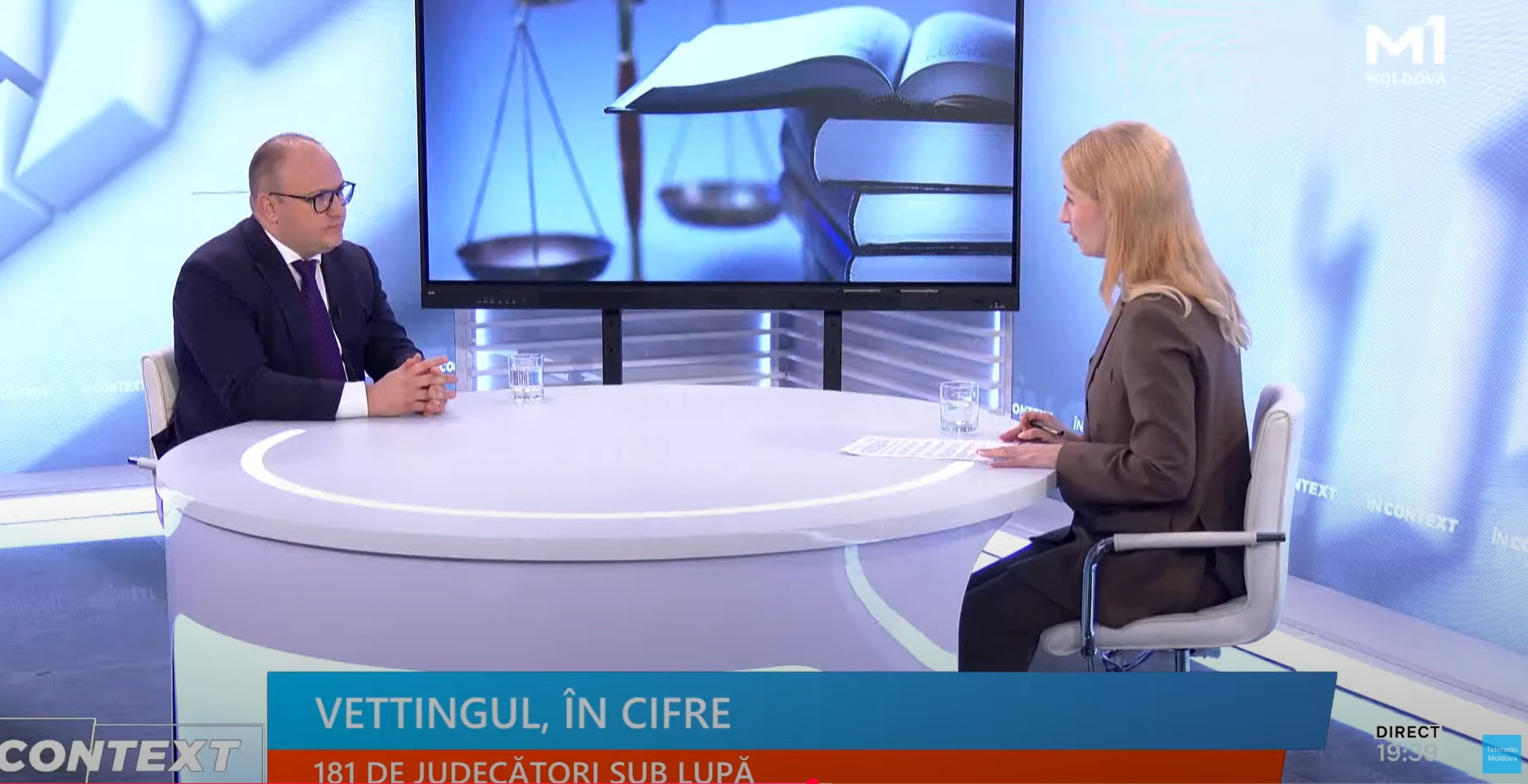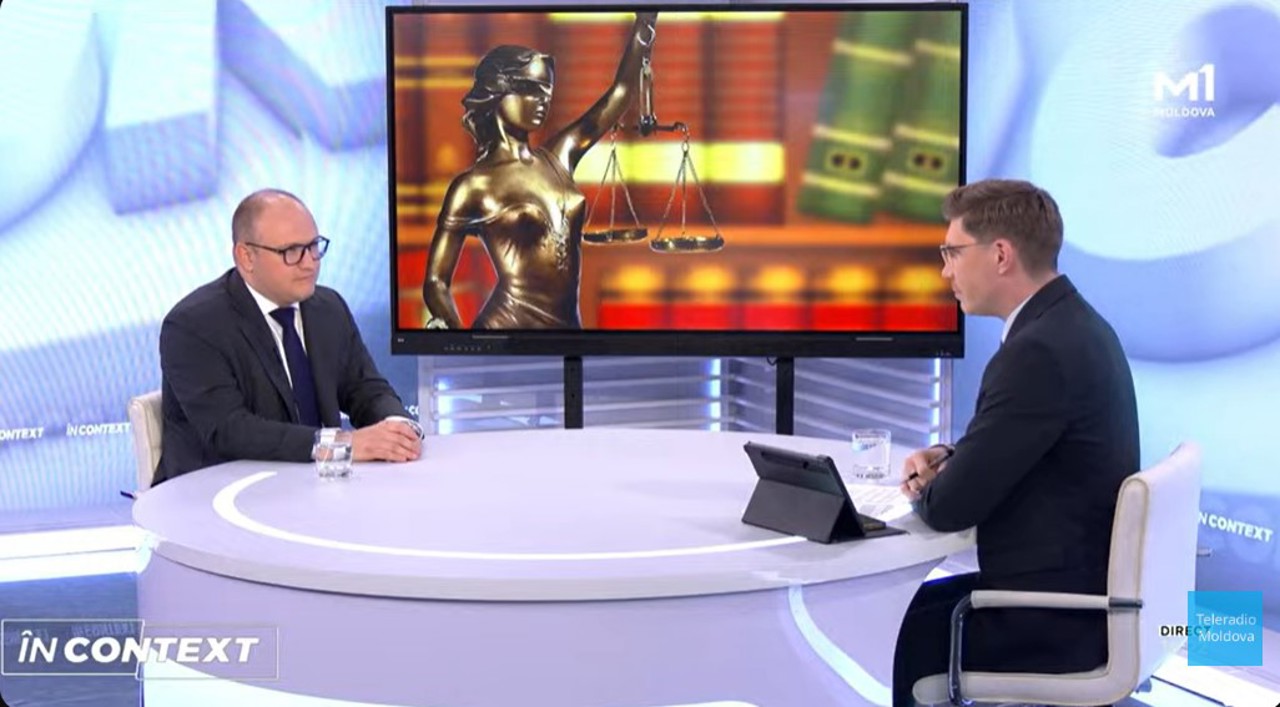Andrei Bivol: 17% of sitting judges still need to be evaluated, and the number of candidates remains unknown.

The Vice-President of the Judicial Vetting Commission, Andrei Bivol, participated in the TV Moldova 1 program “În Context,” providing an overview of the judicial vetting process. Here are some key points from the episode:
• The evaluation is not limited to sitting judges; it also covers candidates for vacant positions at the Supreme Court, Courts of Appeal, and for the roles of court presidents or vice-presidents.
• Approximately 17% of sitting judges still need to be evaluated.
• The process can lead to dismissal and a ban on holding public office for 5–10 years; subjects have the right to contest decisions in court.
• Transparency is essential, but judges’ private lives are also protected. Excessive publicity of the evaluation process could increase public distrust.
• The evaluation is independent: no institution or politician can influence the decisions.
Andrei Bivol rejected any allegations of political influence, emphasizing that the Judicial Vetting Commission operates independently, without institutional or personal pressure, and that unfounded political statements do not affect the process. “When we heard clumsy statements from the political class about how vetting should take place, we issued declarations to dissociate ourselves and clarify that such statements do not help the process and have no impact on the evaluation,” the Vice-President of the Commission said in the TV Moldova 1 studio.
Regarding the vetting deadlines, these may be affected by the slow pace of judicial appointments. “The legal deadline is December 31, 2026, which is the cutoff for evaluating judges of the courts of appeal, courts of first instance, and candidates for the Supreme Court of Justice. The exact number of candidates and the speed at which all positions will be filled remain unknown. The next government will likely need to identify measures to encourage potential candidates to apply and be willing to undergo the evaluation process before appointment,” Andrei Bivol stated.

.svg)





.webp)





